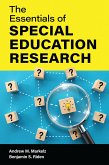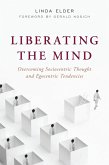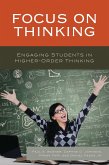Teaching in a Globally-Connected World (eBook, PDF)
Preparing Learners for the Future
Redaktion: Sparapani, Ervin F.; McClain, Pamela L. Ross
56,95 €
56,95 €
inkl. MwSt.
Sofort per Download lieferbar

28 °P sammeln
56,95 €
Als Download kaufen

56,95 €
inkl. MwSt.
Sofort per Download lieferbar

28 °P sammeln
Jetzt verschenken
Alle Infos zum eBook verschenken
56,95 €
inkl. MwSt.
Sofort per Download lieferbar
Alle Infos zum eBook verschenken

28 °P sammeln
Teaching in a Globally-Connected World (eBook, PDF)
Preparing Learners for the Future
Redaktion: Sparapani, Ervin F.; McClain, Pamela L. Ross
- Format: PDF
- Merkliste
- Auf die Merkliste
- Bewerten Bewerten
- Teilen
- Produkt teilen
- Produkterinnerung
- Produkterinnerung

Bitte loggen Sie sich zunächst in Ihr Kundenkonto ein oder registrieren Sie sich bei
bücher.de, um das eBook-Abo tolino select nutzen zu können.
Hier können Sie sich einloggen
Hier können Sie sich einloggen
Sie sind bereits eingeloggt. Klicken Sie auf 2. tolino select Abo, um fortzufahren.

Bitte loggen Sie sich zunächst in Ihr Kundenkonto ein oder registrieren Sie sich bei bücher.de, um das eBook-Abo tolino select nutzen zu können.
This book examines the current social, political, economic, and religious climate of the world, makes projections for the future, and then makes suggestions for what the contributors believe educators need to think about in order to adequately prepare young people to successfully navigate that future. We live in a globally-connected world, and young people, as they move into the future, need to be prepared to live in that future. Schools (and teachers) tend to focus on the present, which is okay; however, schools (and teachers) must decide what is important to know in the present in order for…mehr
- Geräte: PC
- mit Kopierschutz
- eBook Hilfe
- Größe: 1.75MB
Andere Kunden interessierten sich auch für
![Teaching in a Globally-Connected World (eBook, ePUB) Teaching in a Globally-Connected World (eBook, ePUB)]() Teaching in a Globally-Connected World (eBook, ePUB)56,95 €
Teaching in a Globally-Connected World (eBook, ePUB)56,95 €![Thought Experiments (eBook, PDF) Thought Experiments (eBook, PDF)]() Chris EdwardsThought Experiments (eBook, PDF)18,95 €
Chris EdwardsThought Experiments (eBook, PDF)18,95 €![The Essentials of Special Education Research (eBook, PDF) The Essentials of Special Education Research (eBook, PDF)]() Andrew M. MarkelzThe Essentials of Special Education Research (eBook, PDF)18,95 €
Andrew M. MarkelzThe Essentials of Special Education Research (eBook, PDF)18,95 €![Liberating the Mind (eBook, PDF) Liberating the Mind (eBook, PDF)]() Linda ElderLiberating the Mind (eBook, PDF)13,95 €
Linda ElderLiberating the Mind (eBook, PDF)13,95 €![Writing, Imitation, and Performance (eBook, PDF) Writing, Imitation, and Performance (eBook, PDF)]() Irene L. ClarkWriting, Imitation, and Performance (eBook, PDF)19,95 €
Irene L. ClarkWriting, Imitation, and Performance (eBook, PDF)19,95 €![International Perspectives on Student Behavior (eBook, PDF) International Perspectives on Student Behavior (eBook, PDF)]() Charles J. RussoInternational Perspectives on Student Behavior (eBook, PDF)23,95 €
Charles J. RussoInternational Perspectives on Student Behavior (eBook, PDF)23,95 €![Focus on Thinking (eBook, PDF) Focus on Thinking (eBook, PDF)]() Paul A. WagnerFocus on Thinking (eBook, PDF)17,95 €
Paul A. WagnerFocus on Thinking (eBook, PDF)17,95 €-
-
-
This book examines the current social, political, economic, and religious climate of the world, makes projections for the future, and then makes suggestions for what the contributors believe educators need to think about in order to adequately prepare young people to successfully navigate that future. We live in a globally-connected world, and young people, as they move into the future, need to be prepared to live in that future. Schools (and teachers) tend to focus on the present, which is okay; however, schools (and teachers) must decide what is important to know in the present in order for young people to be successful in the future. The responsibility of education today must be to prepare learners to live in an unknown future, that is global, and not be so focused on an uncertain present.
Produktdetails
- Produktdetails
- Verlag: Bloomsbury eBooks US
- Seitenzahl: 244
- Erscheinungstermin: 29. Juli 2016
- Englisch
- ISBN-13: 9780761891574
- Artikelnr.: 74626830
- Verlag: Bloomsbury eBooks US
- Seitenzahl: 244
- Erscheinungstermin: 29. Juli 2016
- Englisch
- ISBN-13: 9780761891574
- Artikelnr.: 74626830
- Herstellerkennzeichnung Die Herstellerinformationen sind derzeit nicht verfügbar.
Ervin F. Sparapani is a retired professor of secondary education, Saginaw Valley State University, University Center, MI. Ervin earned a Ph.D. in curriculum and instruction at The University of Michigan-Ann Arbor. He believes that teachers, educational leaders, and parents have the responsibility to prepare young people to be critical thinkers and flexible learners that can adapt readily to a global world both now and in the future. Pamela L. Ross McClain is currently an Assistant Professor at the University of Michigan-Flint where she directs the Educational Leadership Doctor of Education program. Pamela earned a Ph.D. from MSU is in curriculum instruction and educational policy with a cognate in teacher and staff development. She has been a professional educator for nearly two decades and remains dedicated to supporting educational professionals at all levels in experiencing success in schools.
Foreword-Amy M. Cooper
Introduction-Ervin F. Sparapani and Pamela L. Ross McClain
Introduction to Part I-A Global Society: Socially, Politically,
Economically, Religiously
Understanding U. S. Society and Globalization: Some Considerations for
Meaningful and Useful Future CareersBrian J. Smith
Politics in the Age of Globalization: Actors, Institutions, and Key Issue
Areas for Global Leadership Pablo Toral
Hyper-Dynamism: Describing and Characterizing Major Current and Future
Global Economic Trends Joseph Ofori-Dankwa, Stacie Krupp, Tom Sesti, and
Eva Ester Shalin
Understanding the Major Word Religions in an American Classroom Byung-In
Seo
Visionary Leadership and Parent, Student, and Teacher
EmpowermentIntroduction to Part II-Visionary Leadership and Parent,
Student, and Teacher Empowerment
Educating for the Future: Designing Curriculum for the Twenty-First Century
Ervin F. Sparapani and David M. Callejo Perez
Visionary Principals and School District Leadership for a
Globally-Connected World Anne R. Tapp and Catherine L.
Meyer-LoozePrincipals and Professional Learning Communities: Developing
Teacher Leaders for the Twenty-First Century, Globally-Connected World
Ervin F. Sparapani, Shannon M. Pietras, Nicole M. Rogers, Paul J.
Voydanoff, Danielle R. MacKay, and David G. Fuchs
The Globally-Connected World and the Teacher Leader: The Issue of Teacher
EmpowermentErvin F. Sparapani, Danielle R. MacKay, David G. Fuchs, Paul J.
Voydanoff, Nicole M. Rogers, and Shannon M. Pietras
Twenty-First Century Schools, Global Citizenship, and Glocalization:
Empowering Parents and Student to Think Globally and Act Locally Pamela L.
Ross McClain and De'Andre L. Shepard
Teaching with a Future Orientation: Moving Learners to the
FutureIntroduction to Part III-Teaching with a Future Orientation: Moving
Learners to the Future
Complementing Critical Thinking with Mentalpreneruial Thinking: A New
Teaching Paradigm for the Future Hyper-Dynamic Workplace Joseph
Ofori-Dankwa, Tom Sesti, Stacie Krupp, and Alex Titus-Glover
Literacy Practices: A Way Forward Suzanne D. Knight and Marc B. Vickers
Developing Global Understanding through Mathematics David K. Pugalee and
Courtney L. Glavich
Science in a Globally-Connected World: Science and the Next Generation of
Learners in a Global Society Beth M. Rittenberg
The Future of Social Studies Teaching: Preparing Learners for Life in a
Global Society Kieran J. Astley, Jimm E. Bohn, Jr., Heather L. Selich,
Jayne M. Sherbeck, and C. Rodney Williams
Arts Education: Empowering Teachers to Move Learners Forward by Elevating
Creativity in the Arts Carolyn J. Schaeffer and Scott R. Kirst
Foreign Language: Not So Foreign Anymore Kasydra J. Goode-Tibbs
Technology: The Driver for Twenty-First Century Skills Amy M. Cooper and
Lisa H. Meyers
Introduction-Ervin F. Sparapani and Pamela L. Ross McClain
Introduction to Part I-A Global Society: Socially, Politically,
Economically, Religiously
Understanding U. S. Society and Globalization: Some Considerations for
Meaningful and Useful Future CareersBrian J. Smith
Politics in the Age of Globalization: Actors, Institutions, and Key Issue
Areas for Global Leadership Pablo Toral
Hyper-Dynamism: Describing and Characterizing Major Current and Future
Global Economic Trends Joseph Ofori-Dankwa, Stacie Krupp, Tom Sesti, and
Eva Ester Shalin
Understanding the Major Word Religions in an American Classroom Byung-In
Seo
Visionary Leadership and Parent, Student, and Teacher
EmpowermentIntroduction to Part II-Visionary Leadership and Parent,
Student, and Teacher Empowerment
Educating for the Future: Designing Curriculum for the Twenty-First Century
Ervin F. Sparapani and David M. Callejo Perez
Visionary Principals and School District Leadership for a
Globally-Connected World Anne R. Tapp and Catherine L.
Meyer-LoozePrincipals and Professional Learning Communities: Developing
Teacher Leaders for the Twenty-First Century, Globally-Connected World
Ervin F. Sparapani, Shannon M. Pietras, Nicole M. Rogers, Paul J.
Voydanoff, Danielle R. MacKay, and David G. Fuchs
The Globally-Connected World and the Teacher Leader: The Issue of Teacher
EmpowermentErvin F. Sparapani, Danielle R. MacKay, David G. Fuchs, Paul J.
Voydanoff, Nicole M. Rogers, and Shannon M. Pietras
Twenty-First Century Schools, Global Citizenship, and Glocalization:
Empowering Parents and Student to Think Globally and Act Locally Pamela L.
Ross McClain and De'Andre L. Shepard
Teaching with a Future Orientation: Moving Learners to the
FutureIntroduction to Part III-Teaching with a Future Orientation: Moving
Learners to the Future
Complementing Critical Thinking with Mentalpreneruial Thinking: A New
Teaching Paradigm for the Future Hyper-Dynamic Workplace Joseph
Ofori-Dankwa, Tom Sesti, Stacie Krupp, and Alex Titus-Glover
Literacy Practices: A Way Forward Suzanne D. Knight and Marc B. Vickers
Developing Global Understanding through Mathematics David K. Pugalee and
Courtney L. Glavich
Science in a Globally-Connected World: Science and the Next Generation of
Learners in a Global Society Beth M. Rittenberg
The Future of Social Studies Teaching: Preparing Learners for Life in a
Global Society Kieran J. Astley, Jimm E. Bohn, Jr., Heather L. Selich,
Jayne M. Sherbeck, and C. Rodney Williams
Arts Education: Empowering Teachers to Move Learners Forward by Elevating
Creativity in the Arts Carolyn J. Schaeffer and Scott R. Kirst
Foreign Language: Not So Foreign Anymore Kasydra J. Goode-Tibbs
Technology: The Driver for Twenty-First Century Skills Amy M. Cooper and
Lisa H. Meyers
Foreword-Amy M. Cooper
Introduction-Ervin F. Sparapani and Pamela L. Ross McClain
Introduction to Part I-A Global Society: Socially, Politically,
Economically, Religiously
Understanding U. S. Society and Globalization: Some Considerations for
Meaningful and Useful Future CareersBrian J. Smith
Politics in the Age of Globalization: Actors, Institutions, and Key Issue
Areas for Global Leadership Pablo Toral
Hyper-Dynamism: Describing and Characterizing Major Current and Future
Global Economic Trends Joseph Ofori-Dankwa, Stacie Krupp, Tom Sesti, and
Eva Ester Shalin
Understanding the Major Word Religions in an American Classroom Byung-In
Seo
Visionary Leadership and Parent, Student, and Teacher
EmpowermentIntroduction to Part II-Visionary Leadership and Parent,
Student, and Teacher Empowerment
Educating for the Future: Designing Curriculum for the Twenty-First Century
Ervin F. Sparapani and David M. Callejo Perez
Visionary Principals and School District Leadership for a
Globally-Connected World Anne R. Tapp and Catherine L.
Meyer-LoozePrincipals and Professional Learning Communities: Developing
Teacher Leaders for the Twenty-First Century, Globally-Connected World
Ervin F. Sparapani, Shannon M. Pietras, Nicole M. Rogers, Paul J.
Voydanoff, Danielle R. MacKay, and David G. Fuchs
The Globally-Connected World and the Teacher Leader: The Issue of Teacher
EmpowermentErvin F. Sparapani, Danielle R. MacKay, David G. Fuchs, Paul J.
Voydanoff, Nicole M. Rogers, and Shannon M. Pietras
Twenty-First Century Schools, Global Citizenship, and Glocalization:
Empowering Parents and Student to Think Globally and Act Locally Pamela L.
Ross McClain and De'Andre L. Shepard
Teaching with a Future Orientation: Moving Learners to the
FutureIntroduction to Part III-Teaching with a Future Orientation: Moving
Learners to the Future
Complementing Critical Thinking with Mentalpreneruial Thinking: A New
Teaching Paradigm for the Future Hyper-Dynamic Workplace Joseph
Ofori-Dankwa, Tom Sesti, Stacie Krupp, and Alex Titus-Glover
Literacy Practices: A Way Forward Suzanne D. Knight and Marc B. Vickers
Developing Global Understanding through Mathematics David K. Pugalee and
Courtney L. Glavich
Science in a Globally-Connected World: Science and the Next Generation of
Learners in a Global Society Beth M. Rittenberg
The Future of Social Studies Teaching: Preparing Learners for Life in a
Global Society Kieran J. Astley, Jimm E. Bohn, Jr., Heather L. Selich,
Jayne M. Sherbeck, and C. Rodney Williams
Arts Education: Empowering Teachers to Move Learners Forward by Elevating
Creativity in the Arts Carolyn J. Schaeffer and Scott R. Kirst
Foreign Language: Not So Foreign Anymore Kasydra J. Goode-Tibbs
Technology: The Driver for Twenty-First Century Skills Amy M. Cooper and
Lisa H. Meyers
Introduction-Ervin F. Sparapani and Pamela L. Ross McClain
Introduction to Part I-A Global Society: Socially, Politically,
Economically, Religiously
Understanding U. S. Society and Globalization: Some Considerations for
Meaningful and Useful Future CareersBrian J. Smith
Politics in the Age of Globalization: Actors, Institutions, and Key Issue
Areas for Global Leadership Pablo Toral
Hyper-Dynamism: Describing and Characterizing Major Current and Future
Global Economic Trends Joseph Ofori-Dankwa, Stacie Krupp, Tom Sesti, and
Eva Ester Shalin
Understanding the Major Word Religions in an American Classroom Byung-In
Seo
Visionary Leadership and Parent, Student, and Teacher
EmpowermentIntroduction to Part II-Visionary Leadership and Parent,
Student, and Teacher Empowerment
Educating for the Future: Designing Curriculum for the Twenty-First Century
Ervin F. Sparapani and David M. Callejo Perez
Visionary Principals and School District Leadership for a
Globally-Connected World Anne R. Tapp and Catherine L.
Meyer-LoozePrincipals and Professional Learning Communities: Developing
Teacher Leaders for the Twenty-First Century, Globally-Connected World
Ervin F. Sparapani, Shannon M. Pietras, Nicole M. Rogers, Paul J.
Voydanoff, Danielle R. MacKay, and David G. Fuchs
The Globally-Connected World and the Teacher Leader: The Issue of Teacher
EmpowermentErvin F. Sparapani, Danielle R. MacKay, David G. Fuchs, Paul J.
Voydanoff, Nicole M. Rogers, and Shannon M. Pietras
Twenty-First Century Schools, Global Citizenship, and Glocalization:
Empowering Parents and Student to Think Globally and Act Locally Pamela L.
Ross McClain and De'Andre L. Shepard
Teaching with a Future Orientation: Moving Learners to the
FutureIntroduction to Part III-Teaching with a Future Orientation: Moving
Learners to the Future
Complementing Critical Thinking with Mentalpreneruial Thinking: A New
Teaching Paradigm for the Future Hyper-Dynamic Workplace Joseph
Ofori-Dankwa, Tom Sesti, Stacie Krupp, and Alex Titus-Glover
Literacy Practices: A Way Forward Suzanne D. Knight and Marc B. Vickers
Developing Global Understanding through Mathematics David K. Pugalee and
Courtney L. Glavich
Science in a Globally-Connected World: Science and the Next Generation of
Learners in a Global Society Beth M. Rittenberg
The Future of Social Studies Teaching: Preparing Learners for Life in a
Global Society Kieran J. Astley, Jimm E. Bohn, Jr., Heather L. Selich,
Jayne M. Sherbeck, and C. Rodney Williams
Arts Education: Empowering Teachers to Move Learners Forward by Elevating
Creativity in the Arts Carolyn J. Schaeffer and Scott R. Kirst
Foreign Language: Not So Foreign Anymore Kasydra J. Goode-Tibbs
Technology: The Driver for Twenty-First Century Skills Amy M. Cooper and
Lisa H. Meyers







